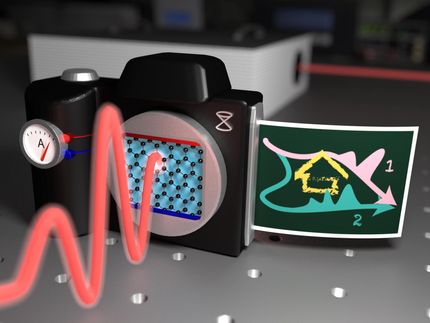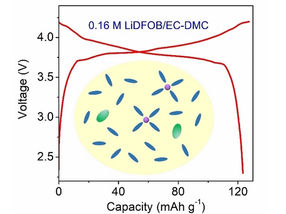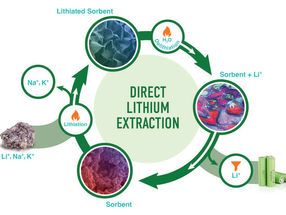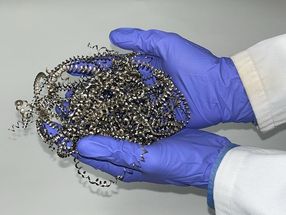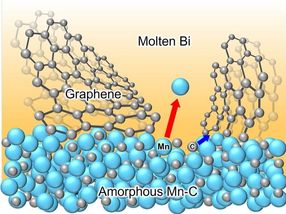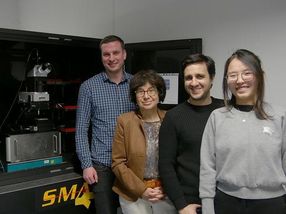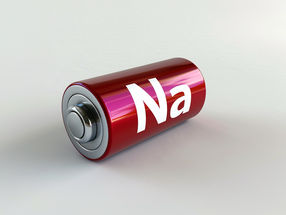Ultra-compact phase modulators based on graphene plasmons
Modulating the amplitude and phase of light is a key ingredient for many of applications such as wavefront shaping, transformation optics, phased arrays, modulators and sensors. Performing this task with high efficiency and small footprint is a major challenge for the development of optoelectronic devices.
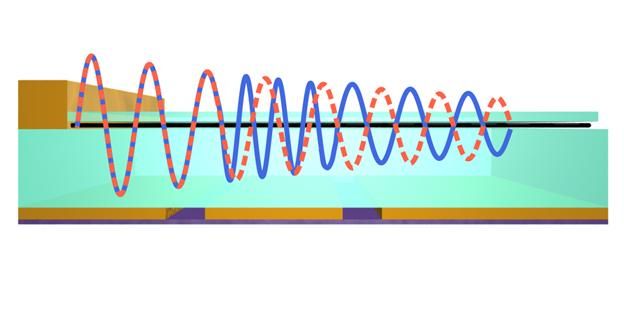
This is a phase modulation due to a local wavelength change.
Achim Woessner/ICFO
ICFO researchers Dr. Achim Woessner and Dr. Mark Lundeberg, led by ICREA Prof. at ICFO Frank Koppens, in collaboration with Prof. Rainer Hillenbrand from CIC Nanogune, Iacopo Torre and Prof. Marco Polini from IIT and Dr. Yuanda Gao and Prof. James Hone from Columbia University, have developed a phase modulator based on graphene capable of tuning the light phase between 0 and 2π in situ.
To achieve this, they exploited the unique wavelength tunability of graphene plasmons, light coupled to electrons in graphene. In their experiment, they used ultra-high quality graphene and build a fully functional phase modulator with a device footprint of only 350 nm, which is 30 times than the wavelength of the infrared light used for this experiment. A near-field microscope was used to excite and image the plasmons, allowing an unprecedented insight into the plasmon properties such as their wavelength and phase.
This new type of phase modulator enables graphene plasmons to be used for ultra-compact light modulators and phase arrays with the possibility to control, steer and focus light in situ. This has potential applications for on-chip biosensing and two dimensional transformation optics.
Original publication
Most read news
Original publication
Achim Woessner, Yuanda Gao, Iacopo Torre, Mark B. Lundeberg, Cheng Tan, Kenji Watanabe, Takashi Taniguchi, Rainer Hillenbrand, James Hone, Marco Polini & Frank H. L. Koppens; "Electrical 2π phase control of infrared light in a 350-nm footprint using graphene plasmons"; Nature Photonics
Topics
Organizations
Other news from the department science

Get the chemical industry in your inbox
From now on, don't miss a thing: Our newsletter for the chemical industry, analytics, lab technology and process engineering brings you up to date every Tuesday and Thursday. The latest industry news, product highlights and innovations - compact and easy to understand in your inbox. Researched by us so you don't have to.
Most read news
More news from our other portals
See the theme worlds for related content
Topic world Sensor technology
Sensor technology has revolutionized the chemical industry by providing accurate, timely and reliable data across a wide range of processes. From monitoring critical parameters in production lines to early detection of potential malfunctions or hazards, sensors are the silent sentinels that ensure quality, efficiency and safety.

Topic world Sensor technology
Sensor technology has revolutionized the chemical industry by providing accurate, timely and reliable data across a wide range of processes. From monitoring critical parameters in production lines to early detection of potential malfunctions or hazards, sensors are the silent sentinels that ensure quality, efficiency and safety.
